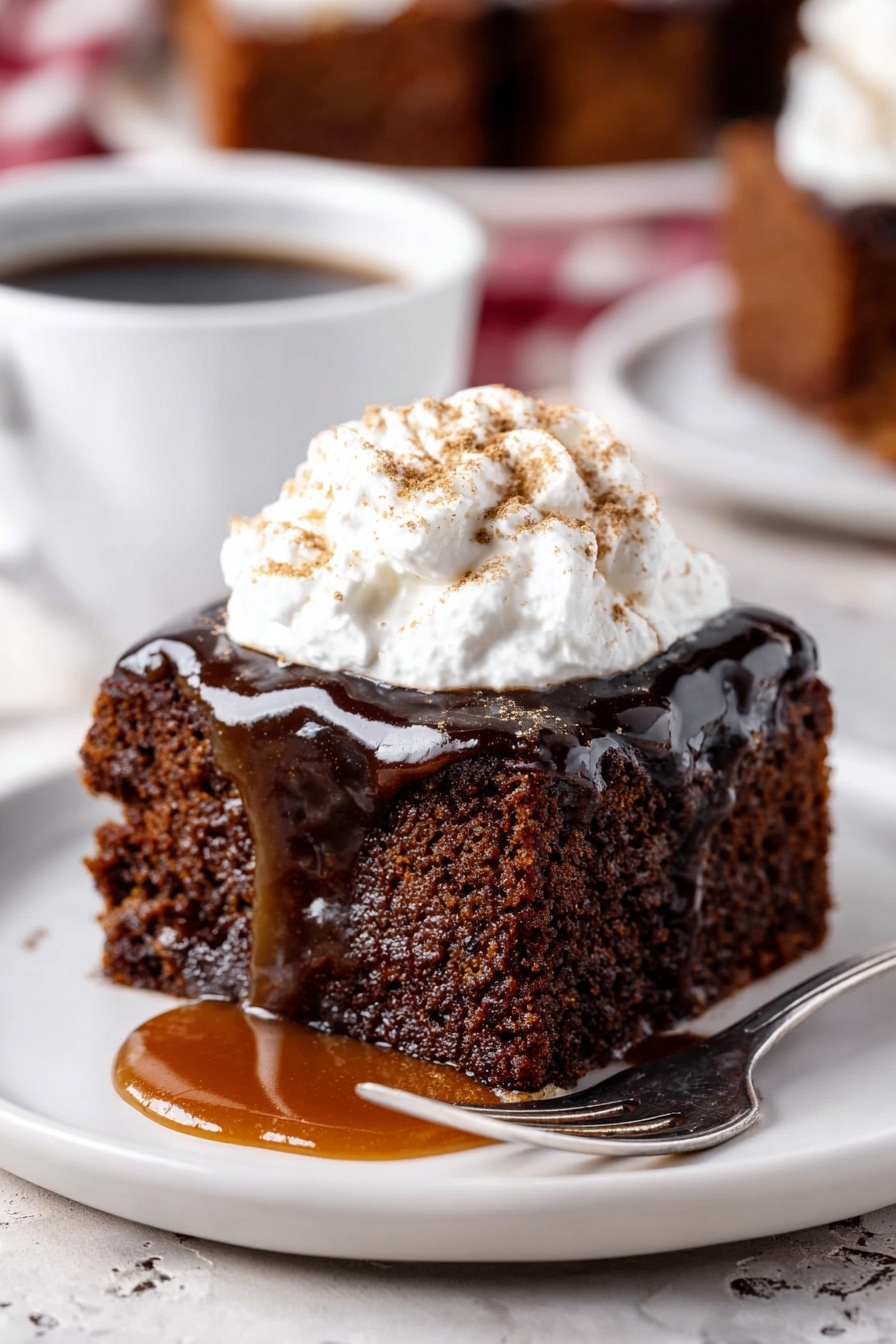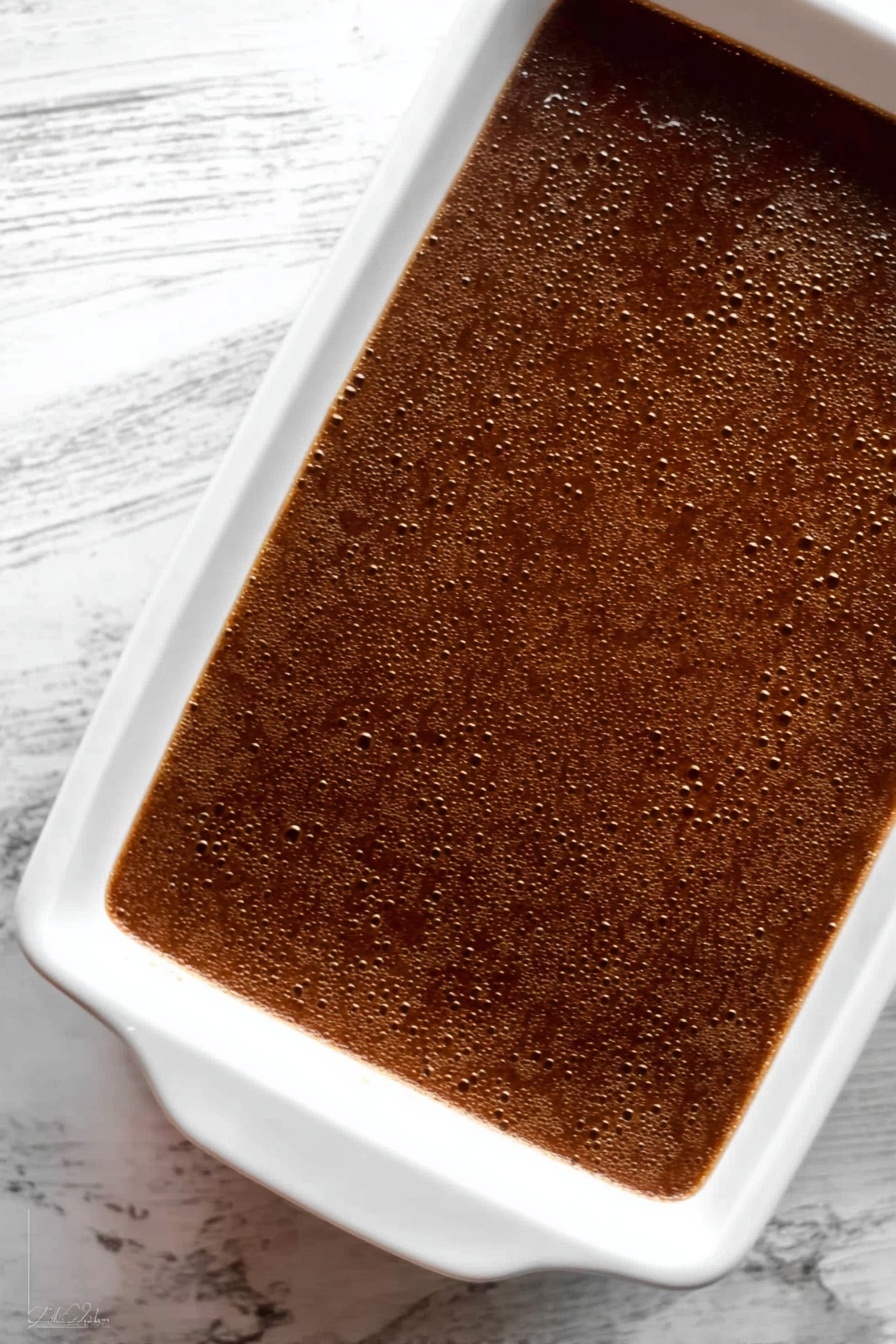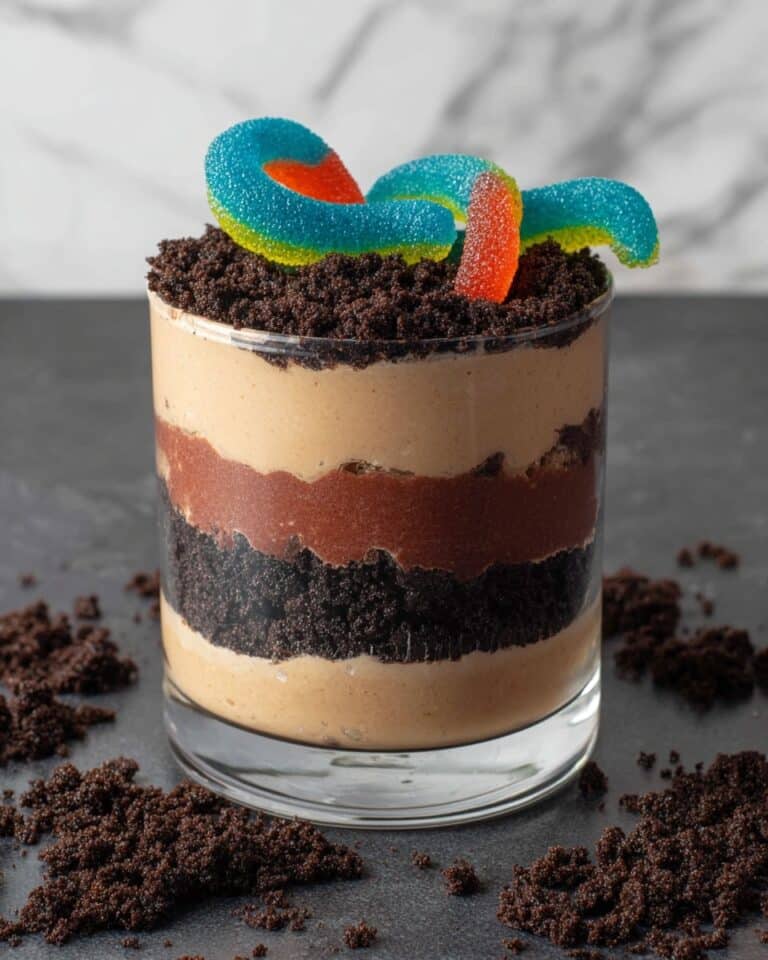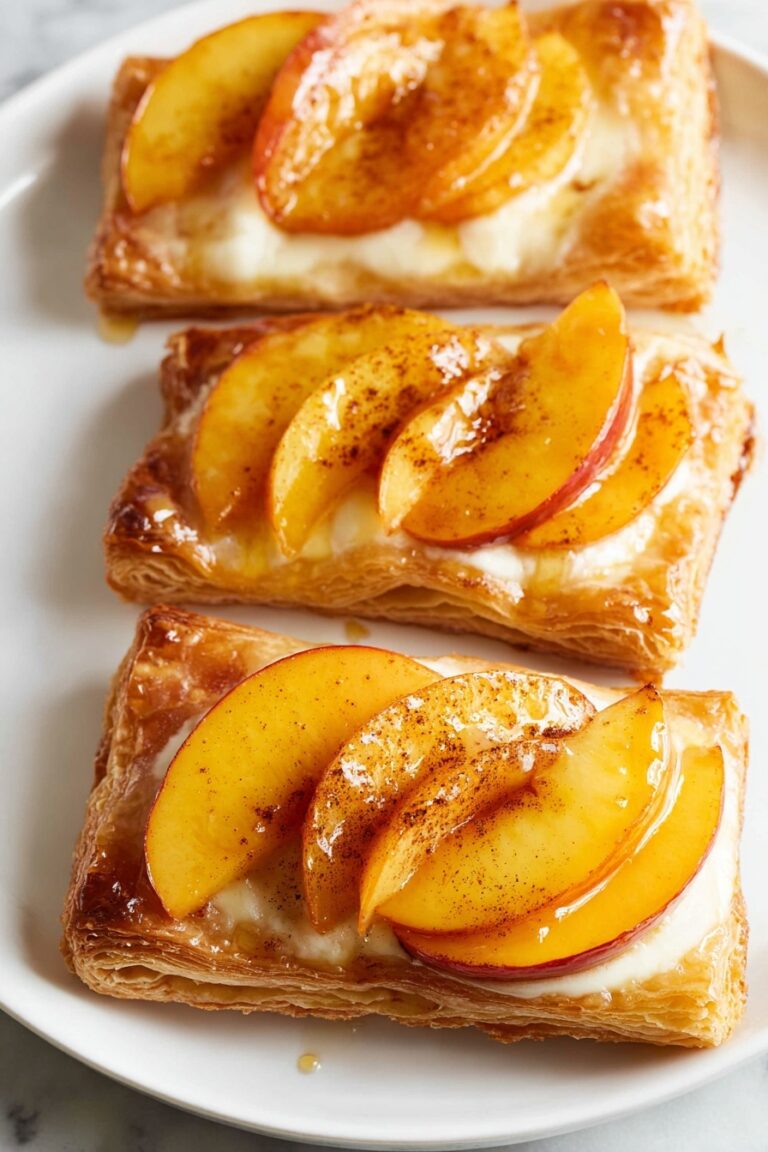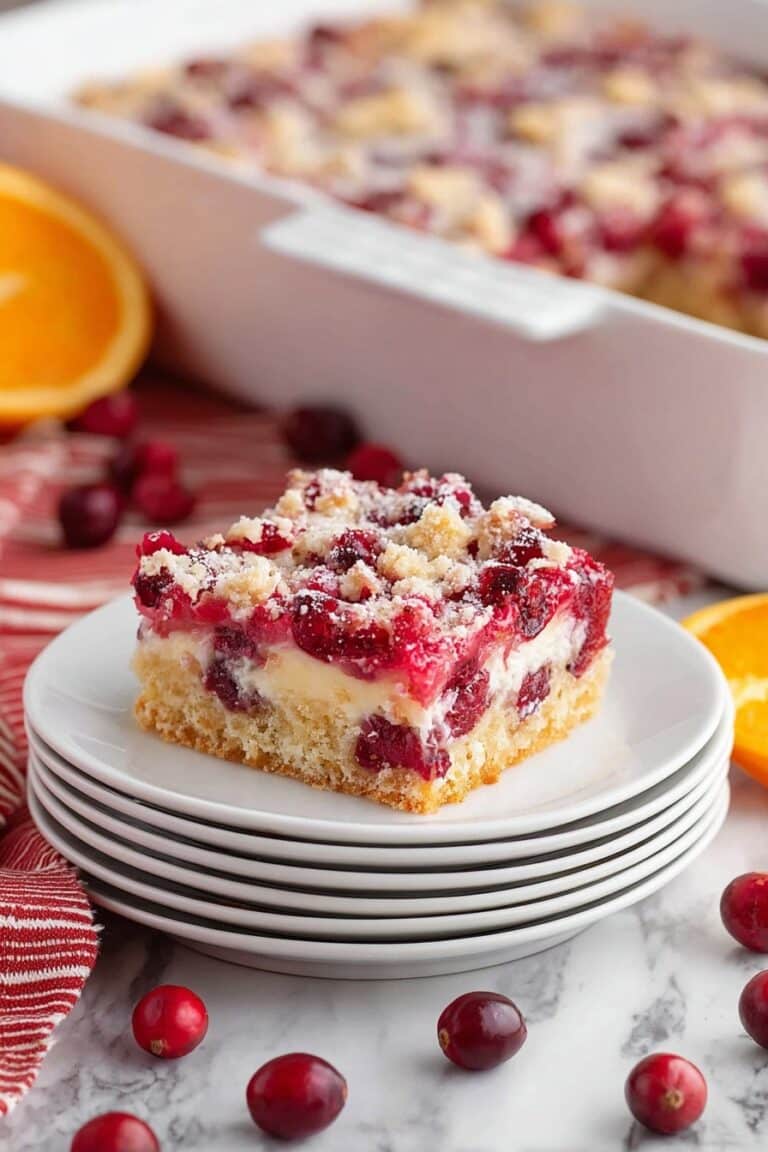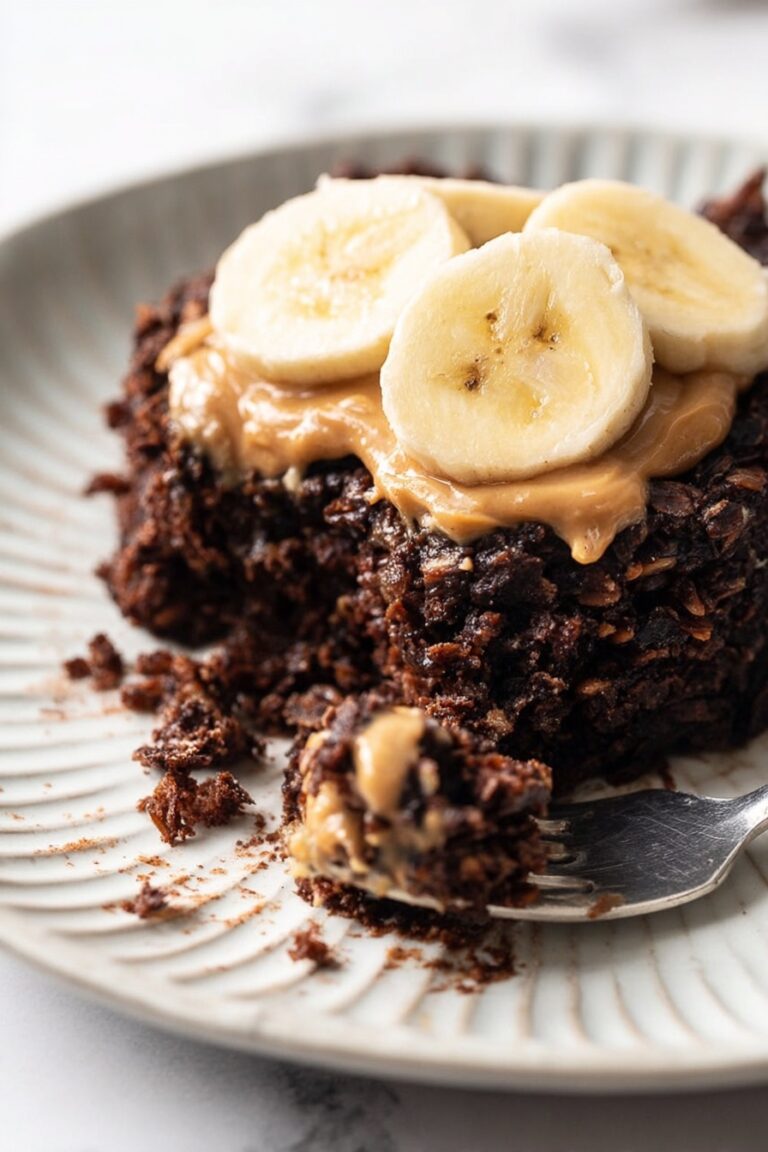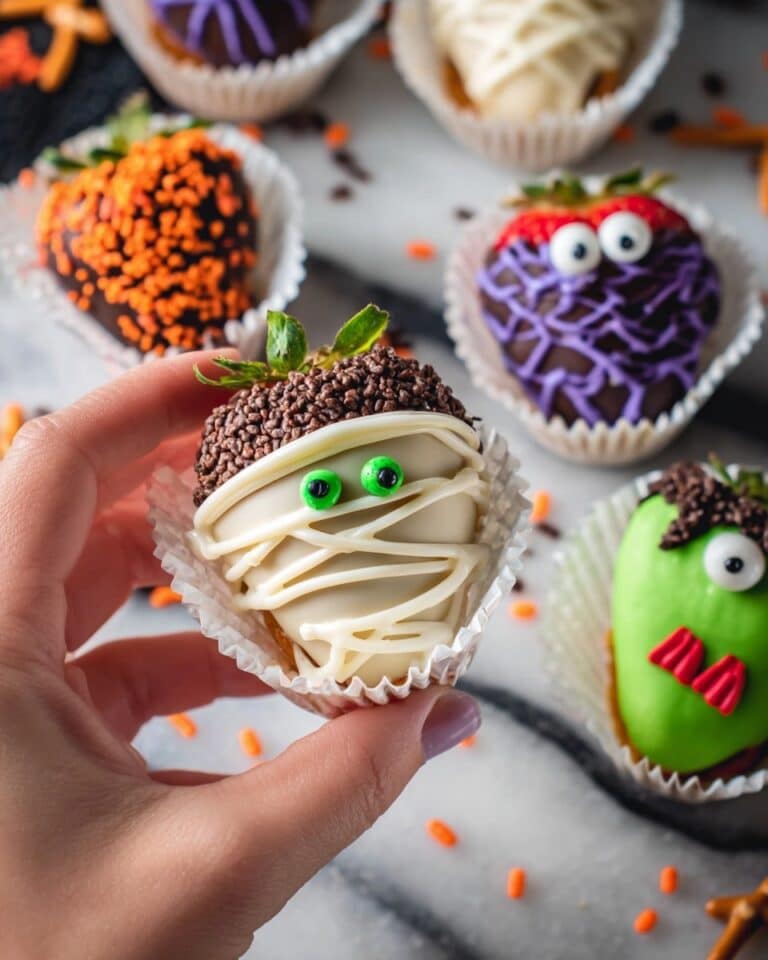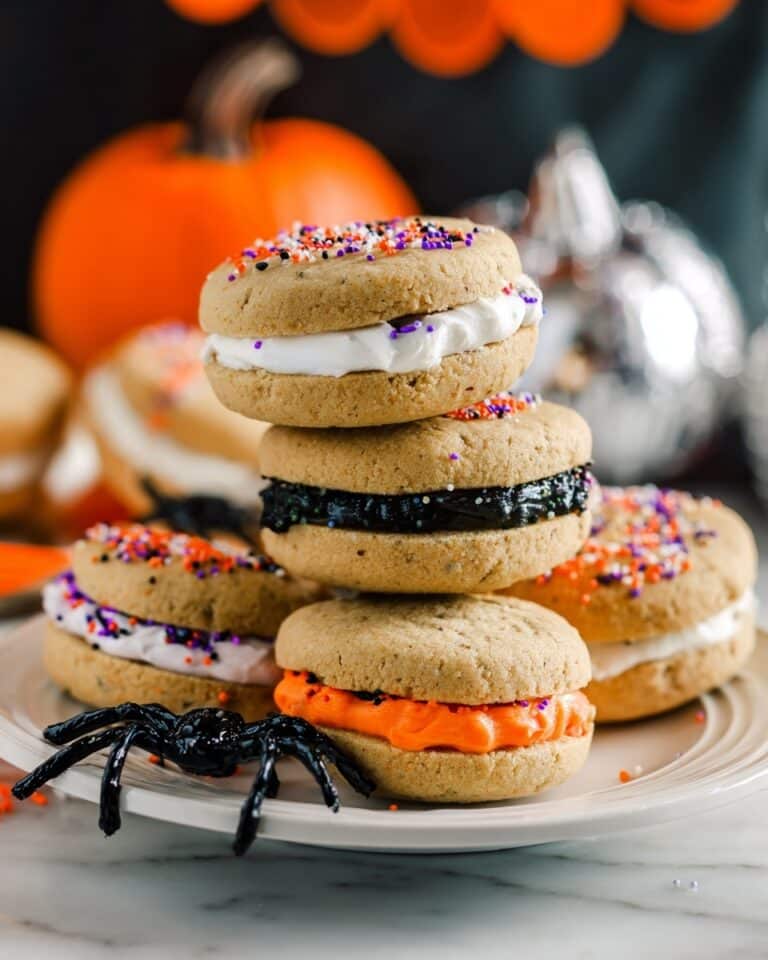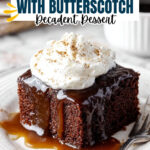Gingerbread Cake with Butterscotch Sauce Recipe
If you’ve been hunting for that cozy, rich dessert that feels like a warm hug on a chilly day, you’re going to adore this Gingerbread Cake with Butterscotch Sauce Recipe. I promise, it’s not just another holiday cake – it’s moist, deeply spiced, and when topped with that luscious homemade butterscotch sauce, it’s pure magic. Stick around, and I’ll share all my tricks to nail this every single time.
Why This Recipe Works
- Balanced Spices: A warm blend of ginger, cinnamon, nutmeg, and cloves that hits all the comforting notes without overpowering the cake.
- Molasses for Depth: Using the right molasses gives the cake its signature dark richness and moist texture that’s hard to beat.
- Rich Butterscotch Sauce: Creamy, buttery, and just sweet enough to elevate every bite of the gingerbread cake.
- Simple Ingredients, Impressive Results: Classic staples you likely have at home, combined in a foolproof way for a show-stopping dessert.
Ingredients & Why They Work
Every ingredient in this Gingerbread Cake with Butterscotch Sauce Recipe has its purpose — from the spices that create the iconic gingerbread flavor to the brown sugar and molasses which keep it moist and tender. Here’s a quick look at the stars of the show and some shopping tips to make your cake turn out beautifully.
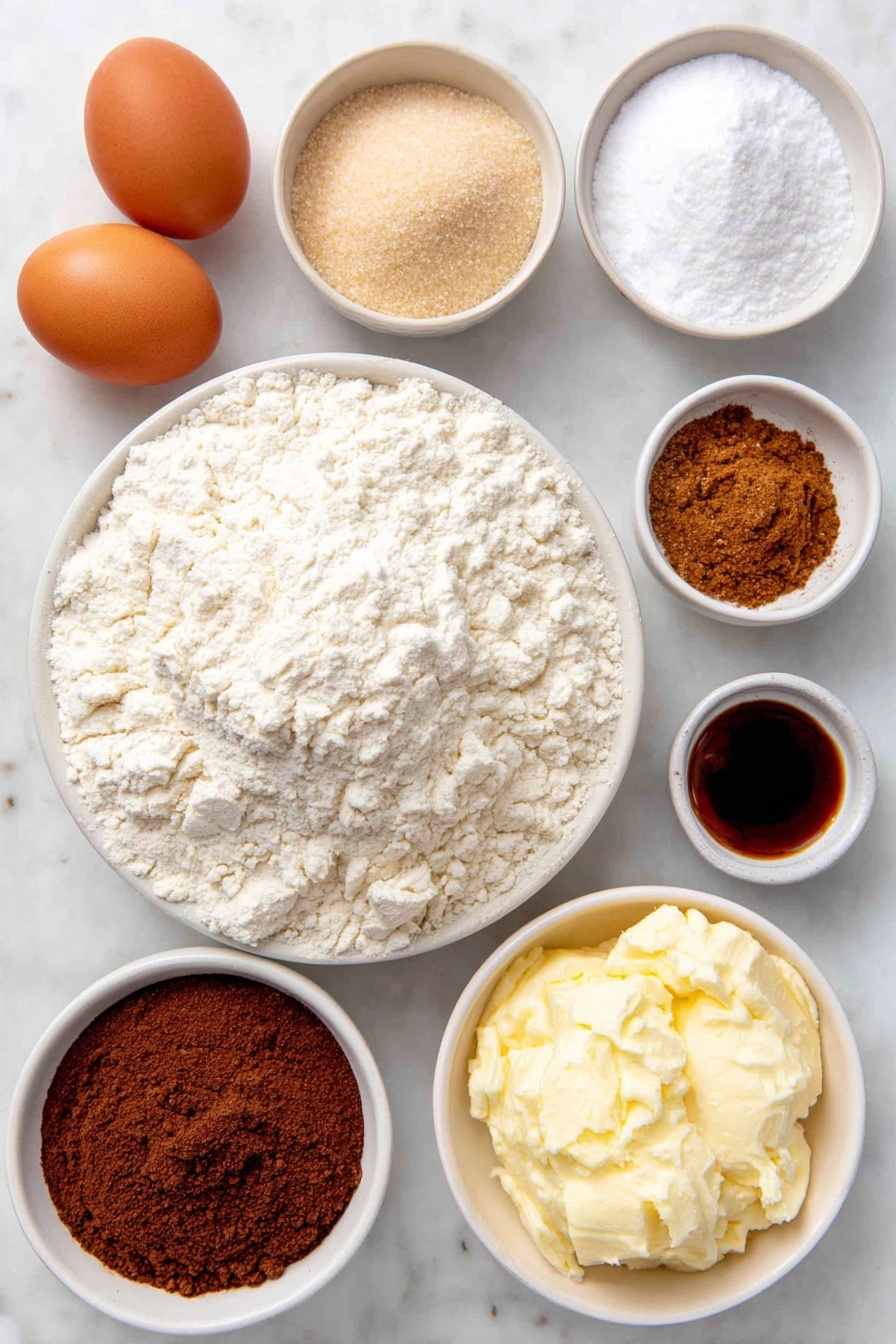
- All-purpose flour: The sturdy base for the cake; no need for fancy flour here, just good old AP flour.
- Ground ginger: The main flavor driver—freshly ground or high-quality ground ginger makes a big difference.
- Cinnamon: Adds warmth and sweetness; choose Ceylon or Cassia, whichever you prefer.
- Nutmeg: Gives a subtle nutty, cozy aroma that’s essential in gingerbread.
- Ground cloves: A little goes a long way, but it adds that deep spice note every classic recipe needs.
- Baking soda: Helps the cake rise and keeps it tender.
- Salt: Balances sweetness and enhances all the flavors.
- Unsalted butter, melted: For richness and moisture; melting it first makes mixing easier.
- Brown sugar: Dark or light works here to add molasses-y sweetness and tenderness.
- Molasses: Be sure to grab fancy or cooking molasses, not blackstrap, for the perfect taste and texture.
- Hot water: Helps dissolve ingredients and creates that perfect tender crumb.
- Eggs: Bind everything together and add richness.
- Vanilla extract: A hint of sweetness and depth that rounds out the spices.
- For the butterscotch sauce: Unsalted butter, brown sugar, salt, heavy cream, and vanilla extract compose this dreamy sauce that you’ll want on everything.
Tweak to Your Taste
I love how forgiving this Gingerbread Cake with Butterscotch Sauce Recipe is—you can tweak it easily without losing any of that signature warmth. Feel free to make it your own by spinning the spices or switching up the sauce, depending on what you feel like.
- Spice it up: Once, I added a pinch of cardamom and a dash of star anise to give it an exotic twist that paired wonderfully with the butterscotch sauce.
- Make it vegan: Swap butter for coconut oil and eggs with flax eggs, and replace the cream in the sauce with coconut cream — I’ve tried this, and it’s delightful!
- Seasonal changes: Add some orange zest to the batter to brighten up the flavors, particularly lovely during festive gatherings.
Step-by-Step: How I Make Gingerbread Cake with Butterscotch Sauce Recipe
Step 1: Prep Your Batter with Care
First off, preheat your oven to 350°F (180°C), and get your 9×13 inch pan greased and floured so the cake doesn’t stick. While that’s warming up, whisk together all your dry ingredients—flour, ground ginger, cinnamon, nutmeg, cloves, baking soda, and salt—in a big bowl. This ensures that the spices are evenly distributed, which is key to consistent flavor in every bite.
Step 2: Mix the Wet Ingredients Gently but Thoroughly
In another large bowl, whisk melted butter, brown sugar, molasses, and hot water together. I like making sure that the butter doesn’t separate from the molasses—giving it a good whisk and letting the warmth merge those ingredients makes the batter silky. Make sure the mixture cools down a bit before adding the eggs and vanilla — otherwise, those eggs might scramble, and you don’t want that in your cake batter!
Step 3: Combine and Bake to Perfection
Now, gently fold your dry ingredients into the wet mix. The batter will be a bit thin, and that’s exactly how it should be — don’t overmix because you want to keep things tender. Pour into the prepared pan and pop it into the oven for about 30-35 minutes. Keep your eye on it starting at 30 minutes: a toothpick inserted into the center should come out clean or with a few moist crumbs.
Step 4: Whip Up the Butterscotch Sauce
While the cake is baking, start your sauce by melting butter in a saucepan over medium-low heat. Once melted, add brown sugar and salt, gently stirring until the sugar dissolves. Then bring the mix to a gentle boil before whisking in the heavy cream. Keep whisking until everything is beautifully combined — remove from heat and stir in vanilla. This sauce is pure velvet and will be your new favorite topping for so many desserts.
Pro Tips for Making Gingerbread Cake with Butterscotch Sauce Recipe
- Don’t rush the molasses mix: Ensure the butter and molasses are fully combined and warm but not hot before adding eggs to avoid scrambling.
- Use a sharp knife for slicing: It keeps the cake’s edges clean and prevents crumbling when cut if freshly baked or cooled.
- Warm your butterscotch sauce: Slightly reheat before serving if it thickens, it’s easier to drizzle and tastes heavenly warm.
- Test for doneness carefully: The cake should spring back lightly—avoid overbaking or it will dry out quickly.
How to Serve Gingerbread Cake with Butterscotch Sauce Recipe
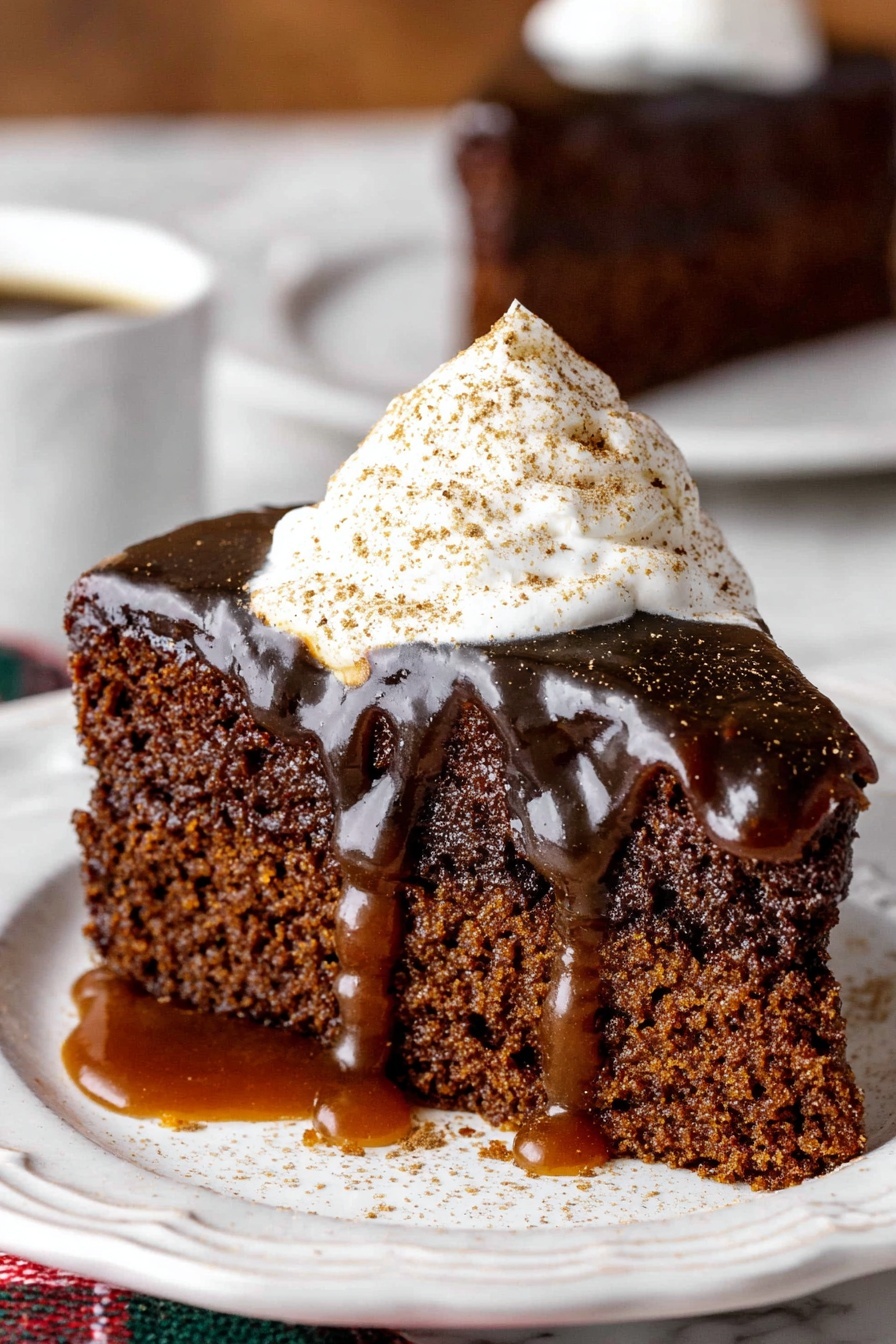
Garnishes
I’m a big fan of simplicity when it comes to garnishes here. A generous warm drizzle of that rich butterscotch sauce is a must, and sometimes I add a light dusting of ground cinnamon right on top. When I’m feeling indulgent, a dollop of lightly whipped cream adds a lovely airy contrast that blends beautifully with the dense cake.
Side Dishes
To turn this dessert into a decadent treat, I like pairing it with a scoop of vanilla bean ice cream or even a spoonful of sharp whipped mascarpone. If you’re serving for a crowd, fresh sliced pears or orange segments on the side add a bright pop that cuts through the richness wonderfully.
Creative Ways to Present
For holiday parties, I’ve served slices of the gingerbread cake in mini ramekins topped with warm butterscotch sauce and a crunch of crushed gingersnap cookies—such a fun textural contrast! Another favorite is layering it with whipped cream and caramelized apples in a trifle glass for an eye-catching presentation.
Make Ahead and Storage
Storing Leftovers
Once your gingerbread cake has cooled, I recommend storing it in an airtight container at room temperature if you plan to eat it within three days—this keeps the texture just right. If you want it to last longer, pop it in the fridge, where it’ll stay good for up to five days without drying out.
Freezing
I’ve frozen slices of the cake wrapped tightly in plastic wrap and foil, and it freezes beautifully for up to three months. Just thaw overnight in the fridge and reheat gently with some warmed butterscotch sauce for a quick dessert rescue.
Reheating
To reheat, I place a slice on a microwave-safe plate and zap it in 20-second intervals, checking in between until warm but not hot. Pour a splash of warm butterscotch sauce on top, and it tastes just like fresh out of the oven! If you prefer the oven, wrap slices in foil and warm at 300°F (150°C) for 10-12 minutes.
FAQs
-
Can I substitute molasses in the Gingerbread Cake with Butterscotch Sauce Recipe?
Yes, if you don’t have molasses on hand, light or fancy molasses is preferred, but you can substitute with honey if necessary. Avoid blackstrap molasses as it’s much more bitter and will alter the flavor. Honey keeps the sweetness balanced but changes the cake’s texture slightly.
-
How do I keep the butterscotch sauce from separating?
Make sure to melt the butter fully and stir the brown sugar in until dissolved before adding cream. Whisking constantly as the cream heats helps emulsify the sauce. Also, don’t over-boil it, as that can cause separation.
-
Can I make the gingerbread cake gluten-free?
Absolutely! I recommend using a 1:1 gluten-free baking flour blend with xanthan gum included. The texture won’t be quite the same but it still yields a tasty cake. Just mix the spices carefully as usual.
-
What’s the best way to serve this cake warm?
Slice the gingerbread cake and gently warm it in the oven wrapped in foil or in the microwave in short bursts. Then pour the warm butterscotch sauce over the top—this combo is pure bliss, especially with a scoop of vanilla ice cream or whipped cream.
Final Thoughts
Making this Gingerbread Cake with Butterscotch Sauce Recipe has become one of my cherished kitchen rituals, especially when the days grow cold and you want a dessert that’s more than just sweet—it’s comforting, nostalgic, and downright delicious. I hope you give it a try and that it becomes your go-to anytime you crave that perfect balance between spice, sweetness, and silky sauce. You’ll be amazed at how effortless it is and how impressive it tastes. Happy baking, friend!
Print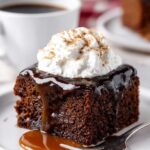
Gingerbread Cake with Butterscotch Sauce Recipe
- Prep Time: 15 minutes
- Cook Time: 35 minutes
- Total Time: 50 minutes
- Yield: 15 pieces
- Category: Dessert
- Method: Baking
- Cuisine: American
- Diet: Vegetarian
Description
This classic Gingerbread Cake features warm spices like ginger, cinnamon, and cloves combined with rich molasses for a deeply flavorful dessert. Topped with a luscious homemade butterscotch sauce, it’s perfect for cozy gatherings and festive occasions.
Ingredients
Gingerbread Cake
- 2 1/3 cup all-purpose flour
- 2 teaspoons ground ginger
- 1 1/2 teaspoons cinnamon
- 1/2 teaspoon nutmeg
- 1/4 teaspoon ground cloves
- 1 1/2 teaspoons baking soda
- 1/4 teaspoon salt
- 3/4 cup unsalted butter, melted
- 1 cup brown sugar, light or dark
- 1 cup molasses (fancy or cooking molasses)
- 1 cup hot water
- 2 large eggs
- 2 teaspoons vanilla extract
Butterscotch Sauce
- 1/3 cup unsalted butter
- 3/4 cup brown sugar
- 1/2 teaspoon salt
- 2/3 cup whipping cream
- 2 teaspoons vanilla extract
Instructions
- Preheat and prepare pan: Preheat your oven to 350°F (180°C). Lightly grease a 9×13 inch (23×33 cm) cake pan and dust it with flour to prevent sticking.
- Mix dry ingredients: In a large bowl, whisk together the all-purpose flour, ground ginger, cinnamon, nutmeg, ground cloves, baking soda, and salt until evenly combined.
- Combine wet ingredients: In a separate large bowl, whisk the melted butter, brown sugar, molasses, and hot water together thoroughly until the butter is fully incorporated without separation.
- Add eggs and vanilla: Whisk in the eggs and vanilla extract carefully, making sure the mixture has cooled enough so the eggs don’t scramble.
- Combine wet and dry mixtures: Gently whisk the dry ingredients into the wet ingredients until the batter is smooth and free of lumps. The batter will be thin.
- Bake the cake: Pour the batter into the prepared pan and bake in the preheated oven for 35 minutes or until a toothpick inserted in the center comes out clean or with a few moist crumbs.
- Make the butterscotch sauce: In a medium saucepan over low-medium heat, melt the butter. Add the brown sugar and salt, stirring gently until dissolved.
- Incorporate cream: Bring the mixture to a gentle boil and whisk in the whipping cream. Continue whisking as it simmers until the cream is fully combined.
- Finish sauce: Remove from heat and whisk in the vanilla extract for a smooth, fragrant butterscotch sauce.
- Serve: Slice the gingerbread cake and serve warm with the butterscotch sauce drizzled on top. Optionally, add a dollop of whipped cream and a sprinkle of cinnamon for extra indulgence.
Notes
- Use fancy or cooking molasses for the best flavor; avoid blackstrap molasses as it is too bitter.
- Honey can be substituted for molasses if necessary, though flavor and texture will vary.
- Store leftover cake in an airtight container at room temperature for up to 3 days or refrigerate for up to 5 days.
- Keep the butterscotch sauce refrigerated in an airtight container for up to 1 week, reheat gently before serving.
- Ensure eggs are added to a cooled wet mixture to prevent scrambling.
- For best results, slice the cake with a sharp knife for clean pieces.
Nutrition
- Serving Size: 1 piece
- Calories: 320 kcal
- Sugar: 30 g
- Sodium: 220 mg
- Fat: 14 g
- Saturated Fat: 8 g
- Unsaturated Fat: 5 g
- Trans Fat: 0 g
- Carbohydrates: 45 g
- Fiber: 2 g
- Protein: 3 g
- Cholesterol: 55 mg

